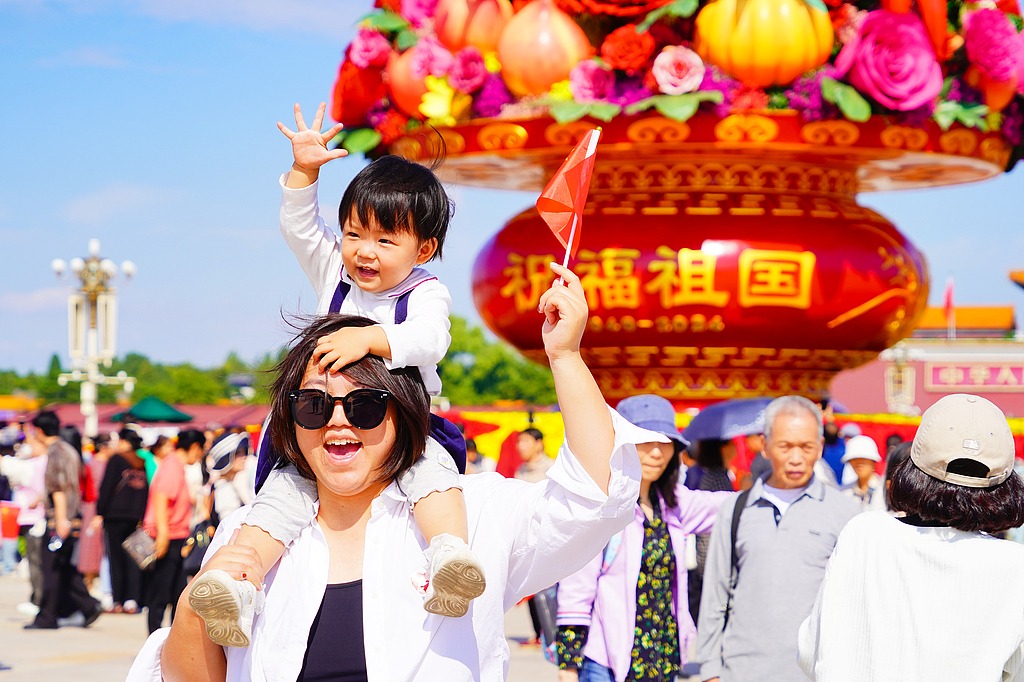Nation to witness quick AI expansion, experts say


Tech heavyweights step up development efforts as concerns voiced over new problems
Artificial intelligence technology is expected to witness speedy growth in China and inject fresh momentum into a new round of industrial development, experts said.
This expansion comes as Chinese tech heavyweights step up efforts to develop their own AI-powered large language models amid a worldwide frenzy surrounding ChatGPT, they said.
Created in November by OpenAI, a startup based in the United States, ChatGPT is an acronym for Chat Generative Pre-trained Transformer. This intelligent chatbot is a computer program designed to stimulate conversation with human users, especially over the internet.
Large language models are AI models fed huge amounts of text data for use in a variety of tasks, ranging from natural language processing to machine translation. Chinese AI companies, experts said, should pool more resources into improving computing power, algorithms and quality of data, and increase investment in basic scientific research, including mathematics, statistics and computer science, to gain a competitive edge in the race to develop chatbots.
The experts added that the use of ChatGPT-style products and related AI technology have raised concerns about ethical problems, data security and leaks of personal privacy. As a result, it is highly important to draw up rules to regulate the use of such fast-developing technology and promote its healthy advancement.
Interest in generative AI, which refers to algorithms trained with huge amounts of data that are able to generate content such as images and text, has surged since the release of ChatGPT.
A host of Chinese tech giants, including Alibaba Group Holding and Baidu, have started to roll out ChatGPT-style products and services. Alibaba recently unveiled its AI-powered large language model Tongyi Qianwen, a potential rival to ChatGPT. The company plans to integrate Tongyi Qianwen into all its applicable businesses in the near future.
Zhang Yong, chairman and CEO of Alibaba Group and CEO of Alibaba Cloud Intelligence, said at the 2023 Alibaba Cloud Summit on April 11: "We are at a technological watershed moment driven by generative AI and cloud computing. Businesses across all sectors have started to embrace intelligent transformation to stay ahead of the game."
Large AI models will be used in a wide range of sectors, giving a significant boost to productivity and profoundly changing people's lifestyles. Alibaba Cloud, the cloud computing unit of Alibaba, will offer more enterprises access to Tongyi Qianwen so they can build their own customized large language models, Zhang added.
Alibaba began researching such models in 2019. It said its ChatGPT-like product will initially be deployed on DingTalk, the company's workplace messaging app, and it can be used to summarize meeting notes, create poetry, write emails and draft business proposals. It will also be added to Tmall Genie, Alibaba's voice assistant.
This announcement came one day after Chinese AI pioneer SenseTime launched SenseNova, its latest set of large AI models, which cover key capabilities including computer vision, natural language processing and AI-generated content.
Last month, Baidu introduced Ernie Bot, its large language model and ChatGPT-like product, which boasts capabilities in fields such as literary creation, business writing, mathematics, and understanding Chinese language. Ernie Bot could be used for a range of functions, including searches, autonomous driving and smart devices.
Robin Li, co-founder, chairman and CEO of Baidu, said Ernie Bot is not perfect, but the company is launching it now because demand is growing and the model will improve quickly as user feedback increases.
"We believe that AI will revolutionize every industry we know today. The immense long-term value of AI and its transformative impact on all aspects of life are only in their infancy," he said.
Li estimated that the multimodal large language model, which can generate text, images, audio and video based on given text prompts, is the future trend for generative AI.
New wave
Other Chinese tech companies have jumped onto the chatbot bandwagon amid a new AI wave triggered by ChatGPT.
Dowson Tong, senior vice-president of Tencent Holdings, said last month at the Boao Forum for Asia that the company is developing its ChatGPT-like chatbot.
He Xiaodong, vice-president of e-commerce giant JD, said recently the company would launch its new-generation large model dubbed ChatJD, a ChatGPT-like product for industrial use, later this year.
Pan Helin, co-director of the Digital Economy and Financial Innovation Research Center at Zhejiang University's International Business School, said, "Compared with its foreign counterparts, China has gained an upper hand in bolstering the industrial application of AI, as the country boasts relatively complete industrial categories, an ultra-large consumer market and a strong development foundation."
Noting that Chinese tech heavyweights and AI unicorns — startups worth more than $1 billion — have joined the rush to build large AI models, Pan is bullish about the prospects for the AI-generated content sector and the use of ChatGPT-style conversational chatbots in China.
Data from global market research company International Data Corp show that China's spending on AI will likely hit $14.75 billion this year, accounting for about one-tenth of the global market. The scale of China's AI market is expected to reach $26.44 billion in 2026, with a compound annual growth rate of more than 20 percent from 2021 to 2026.
China has made significant progress in developing AI technology. A Stanford University report shows that in 2021, the nation filed more than half the world's AI patent applications and continued to lead globally with the number of AI journals, conference papers and related publications.
However, Chinese AI enterprises still lag behind leading foreign competitors in core technologies and fundamental research and development in key fields such as chips and basic components, Pan said.
"The process of training large AI models necessitates higher requirements for computing capacity and algorithms, which rely on massive capital input," Pan added.
Lu Yanxia, research director at IDC China, said Chinese tech companies have the advantage of offering users AI-powered conversational results based on Chinese language and culture. "Generative AI has brought new business opportunities for domestic AI servers, cloud computing and chip companies," Lu added.
AI- and ChatGPT-related technologies are likely to free humans from tedious tasks and enable them to focus on creative thinking, resulting in significant application potential in fields such as culture, retail, finance, healthcare and education.
Chinese home appliance manufacturers and automakers have accelerated efforts to integrate AI chatbots into their products and services in the hope of providing a better human-machine interaction experience.
Home appliance giant Midea Group, based in Foshan, Guangdong province, is among the first batch of partners for Baidu's Ernie Bot. The company will bolster the upgrade of human-machine conversation abilities in the smart home sector by using cutting-edge generative AI technology.
Comparable uses are expected to add value to electric and assisted-driving cars. Smart electric vehicle company Jidu Auto, a joint venture established by Baidu and carmaker Geely Holding Group, said it will integrate Ernie Bot into its cars to develop the world's first large language model powered by AI interactive experience for smart vehicles.
Liu Fei, consumer electronics department research director at market consultancy All View Cloud, said: "The emergence of new AI technologies will better facilitate the conversational interaction between humans and smart home devices. The collaboration between household appliance makers and conversational chatbot developers will bolster the intelligent transformation of China's home appliance industry."
Concern voiced
Market consultancy Gartner predicts that by 2025, generative AI will account for 10 percent of all data created, compared with less than 1 percent last year, and it could be used for activities such as creating software code, facilitating drug development, and targeted marketing.
Meanwhile, commercial use of the revolutionary AI chatbot has triggered controversy and concern about how to regulate generative AI technology, given that a new set of problems is emerging, including ethics, academic cheating, and leaks that infringe on personal privacy and data security.
On April 11, China's cyberspace regulator unveiled draft measures for managing generative AI services. The Cyberspace Administration of China said providers will be responsible for the legitimacy of data used to train generative AI products, and measures should be taken to prevent discrimination when designing algorithms and training data.
The regulator said China supports the innovation and application of AI algorithms and other basic technologies, and encourages the use of safe and reliable software, tools and data resources. But content produced by generative AI should be in line with the nation's core socialist values and the laws on data security and personal information protection.
Companies should submit security assessments to the authorities before they launch their generative AI offerings to the public, it added. They should also ensure the accuracy of information, and not generate false information. The proposed measures are open for public comment until May 10.
Wu Shenkuo, a law professor at Beijing Normal University and deputy director of the Internet Society of China's Research Center, said, "In face of new technologies and applications, it is necessary to continuously explore a set of agile and efficient regulatory mechanisms to deal with related risks promptly."
Hong Yong, an associate research fellow at the Ministry of Commerce's e-commerce research department, said now is the right time to draft such rules, as more domestic companies have joined the rush to launch ChatGPT-like products and services, while problems concerning personal information and privacy protection are rising. The measures announced will help regulate the healthy development of the AI-generated content industry, Hong added.
The Payment and Clearing Association of China has called on companies in the payment industry to use ChatGPT with caution, in view of the risks of cross-border data leaks.
The association said in a statement that the risks of using ChatGPT and other tools to process work content should be comprehensively assessed, and such tools should be used in accordance with laws and regulations. It also said those in the payments industry should not upload key and sensitive information when using ChatGPT.
In an open letter late last month, Tesla CEO Elon Musk and a group of AI experts and industry executives called for a six-month pause in developing language models more powerful than OpenAI's newly launched GPT-4, citing potential risks to society.
Italy is the first Western nation to ban ChatGPT over its suspected breach of strict privacy regulations. Various governments worldwide are looking to come up with their own rules for AI.
Experts said generative AI technology is a double-edged sword, and it is necessary to make safe use of such technology to benefit humans.
Zhou Hongyi, founder of cybersecurity company 360 Security Group, said in a Sina Weibo post that not developing these models "poses the biggest insecurity", and China should continue to develop its own large language models.
The nation must keep up with the ChatGPT trend, as it will significantly improve productivity, thus enhancing the country's competitiveness, Zhou said.
"Whether people are willing or not, GPT will lead to a new round of industrial revolution that goes beyond the invention of the internet or the smartphone," Zhou added.
He said that as Chinese companies are still two years behind GPT-4's level of development, it is too early to worry about the risks associated with AI.
Shen Dou, executive vice-president of Baidu, said that with the emergence of generative AI, "Chinese companies should take action as soon as possible and rethink their advantages and ways to use AI to amplify these advantages".
He said generative AI will result in new occupations, and predicted that 50 percent of people will act as "instructors" in the future to guide AI in performing tasks. As a result, the disappearance of some jobs is bound to create new ones.
An Hui, deputy chief engineer at market research company CCID Consulting, said AI-related technologies are gaining momentum in China, and their use is accelerating in a wide range of sectors, including healthcare, transportation, finance, manufacturing and agriculture.
He added that more efforts should be made to step up the upgrading and use of cutting-edge technologies, such as intelligent chips, deep-learning frameworks, key algorithms, and natural language processes, as well as accelerate the integration of AI with 5G, big data, cloud computing and blockchain technologies.
Lu Guannan, an analyst at research company Forrester, said competition in the AI chatbot sector is heating up and the companies who initially launched AI large language models will have some advantages in obtaining users and exploring application scenarios.
More efforts should be made to enhance natural language processing capacities and reliability of generated content, Lu added.
Guo Tao, deputy head of the China Electronic Commerce Expert Service Center, said, "The use of ChatGPT and AI-related technology is still at a nascent stage, and there is a long way to go to realize its large-scale commercialization, as the application scenarios and related laws and regulations are far from mature."




































